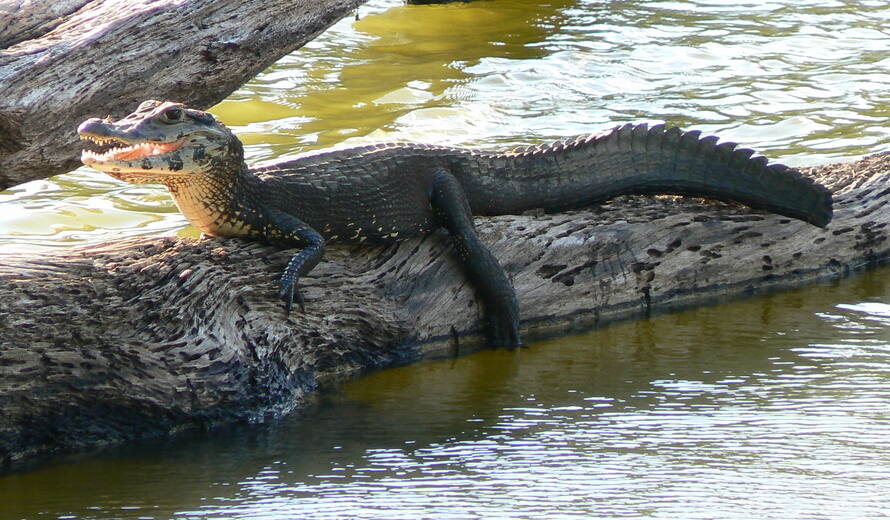
News
“Protecting biodiversity is as vital as fighting climate change”, UNESCO Director-General says on the Launch of the Global Biodiversity Assessment Report
Describing nature’s decline as unprecedented and citing among many indicators, 1,000,000 species threatened with extinction, the Intergovernmental Science-Policy Platform on Biodiversity and Ecosystem Services (IPBES) laid bare the threats to all life on earth in its Global Assessement Report, released at UNESCO headquarters today.
UNESCO Director-General Audrey Azoulay says the report put the world on notice. “Following the adoption of this historic report, no one will be able to claim that they did not know. We can no longer continue to destroy the diversity of life. This is our responsibility towards future generations,” she said. “This report reminds us of the urgent need to act for biodiversity, our global environmental heritage. We can and must all mobilize, urgently and together, to save our planet and thus humanity. Protecting biodiversity is as vital as fighting climate change.”
UNESCO is among IPBES’ main institutional United Nations partners, together with FAO, UNDP and UNEP, and has provided support and engagement from the very early stages of its creation. UNESCO's Local and Indigenous Knowledge Systems programme (LINKS) hosts the Technical Support Unit for the IPBES Task Force on Indigenous and Local Knowledge Systems.
UNESCO is the custodial organization of knowledge and know-how that is respectful of biodiversity. Through its programmes, the organization promotes the co-production of scientific, indigenous and local knowledge, as well as education for sustainable development.
An example of UNESCO’s unique contributions to seeking harmony between people and nature is the World Network of Biosphere Reserves, which is home to more than 250 million people and serves as a path of reconciliation for people and nature. Adding natural World Heritage sites and Global Geoparks with Biosphere Reserves, over 10 million km², an area equivalent to the size of China, is protected.
These networks connect citizens throughout the world to global challenges. These interactions between people and their habitat provide opportunities to explore new solutions and innovations in all key aspects of our lives: sustainable energy, green economies, food, health, transport, leisure and eco-tourism, and waste treatment.
UNESCO supports debate and analysis on the ethical, peace and security dimensions related to biodiversity erosion by promoting and sharing values and cultures that respect all forms of life, including solidarity with other living species (i.e. Great Apes Survival Partnership), and with future generations (youth is one of the organization’s global priorities).
UNESCO is a key player in international cooperation, mobilizing citizens, governments, the private sector, civil society, local communities and indigenous peoples, and scientists through its programmes and networks.
At the request of the United Nations General Assembly, UNESCO’s Intergovernmental Oceanographic Commission (IOC) has invited the global ocean community to define a scientific roadmap for the next ten years to mobilize all actors and put science at the service of its ecosystems.
UNESCO-IOC’s Global Ocean Observation System (GOOS) is providing critical data for monitoring how climate change and humanity’s increasing use of the ocean are affecting marine biodiversity, resources and ecosystem habitats, while its Ocean Biogeographic Information System (OBIS) plays a vital role in providing baseline information for global assessments on the state of the marine environment and environmental impact studies.
Water and biodiversity are inextricably linked, which is why UNESCO is conducting more than 30 eco-hydrology demonstration projects for an integrated understanding of biological and hydrological processes at the watershed scale, in order to create a scientific basis for a sustainable freshwater resources management approach that is socially acceptable, affordable and universal.
One example of this work is the BIOPALT project, where UNESCO is sharing all of its expertise with the countries of the Lake Chad Basin to safeguard and manage sustainably the water, socio-ecosystemic and cultural resources of the region.
The transformation of our world, our ways of life and economies entails sharing values and cultures: UNESCO makes a unique contribution by combining culture, science, local and indigenous knowledge for the implementation of the 2030 Agenda for Sustainable Development.




